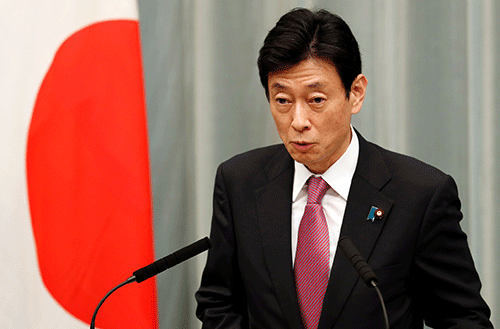The Japanese government plans working with three African nations, including Namibia, to develop supply chains for cobalt and other minerals critical in making batteries for electric vehicles.
Japan, a major vehicle manufacturer, is expected to work with Epangelo, Namibia’s state-owned mining company, with the intention of reinforcing the supply chain for rare earths and other minerals.
Although Namibia is rich in zinc, copper and other resources, its supply chains remain underdeveloped, despite having the necessary infrastructure such as a top class road network and efficient ports that potentially make it a major African export hub. Japan’s plans for African minerals were reported by the Nikkei Group which focusses on publishing, broadcasting and the Nikkei 225 stock index.
In a recent article, Nikkei reported that Japan plans to team up with Zambia, the Democratic Republic of Congo (DRC) and Namibia to expand joint exploration in each country. The projects are scheduled to commence this year.
“Japan looks to diversify its sources of critical minerals, including lithium, to enhance economic security and counter China’s growing investment in African countries,” the article reads.
Meanwhile, the Japan Organisation for Metals and Energy Security (JOGMEC), the state-owned resource explorer intends signing a memorandum of understanding with Zambia soon. JOGMEC is also expected to finalise work plans with DRC and Namibia, based on preliminary agreements already reached with the two countries.
Yasutoshi Nishimura, Japan’s minister for economy, trade and industry, said last week he will visit the three countries, along with Angola and Madagascar, during an eight-day tour of Africa that will end 13 August 2023. The signing of the memorandum of understanding and other agreements are expected to coincide with the itinerary. The Japanese minister is expected in Namibia today for a two-day visit.
“Though JOGMEC is active in Zambia, Congo and Namibia, no private-sector Japanese company has entered any of those countries to develop mining projects for critical minerals due to various risks and the large amount of capital required. A government-led effort to develop resources is seen as helping to draw private investment,” Nikkei reported.
Japan and Zambia are expected to begin extensive exploration in the African country, expanding the scope of the search from cobalt and copper to include nickel. Through JOGMEC, Japan plans to provide remote sensing technology to identify potential mining sites using satellite imagery. “Tokyo will hold a conference with private businesses to address mining investment. Japanese companies such as Nissan Motor and trading house Hanwa are expected to attend,” the Nikkei reported, adding that in DRC, copper and lithium will be the targets of expanded exploration.
In addition, a remote sensing centre is being built in the DRC with support from the Japan International Cooperation Agency. JOGMEC will be among those to train locals in the use of the technology. The Nikkei further reported that Japan seeks to become involved in developing African mines at an early stage with the goal of importing resources from the region. In this regard Tokyo is expected to deepen relations with the three countries with an eye toward building an African supply chain capable of extracting, refining and transporting critical minerals.
This is as demand is growing for minerals such as cobalt and nickel, used to make electric vehicle batteries. Currently, the DRC is responsible for 70% of the global supply of cobalt by volume and Africa remains a major source of copper as well.
In recent years Chinese enterprises have invested heavily in Africa, especially in the DRC. As a result, China has quickly expanded its market share in processing critical EV minerals. However, if China restricts exports in response to tensions with the US, it could impede efforts by Japan and western nations to bring EVs into the mainstream and reduce carbon emissions.
Japan and other Group of Seven industrialised nations depend heavily on China and a few other countries for imports of critical minerals. During the group’s May summit in Hiroshima, G7 leaders agreed to work with developing nations to diversify supply chain for critical minerals.



